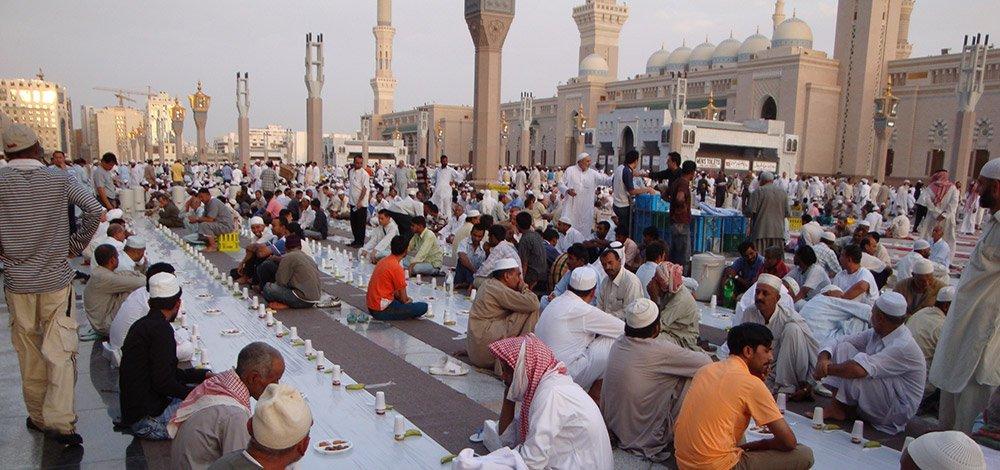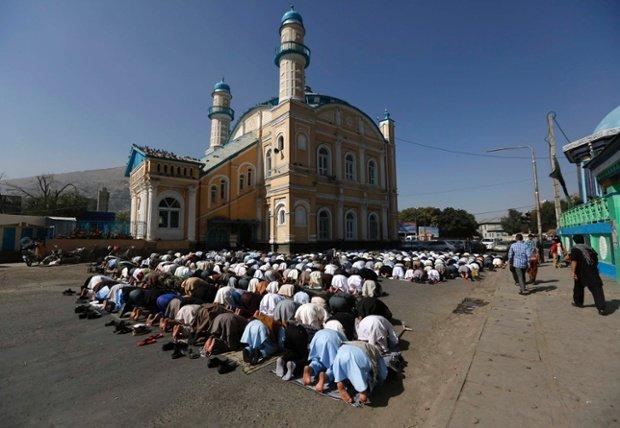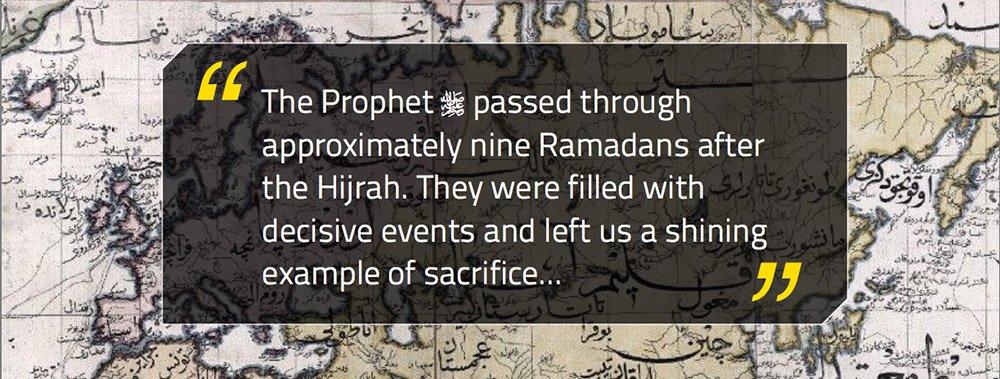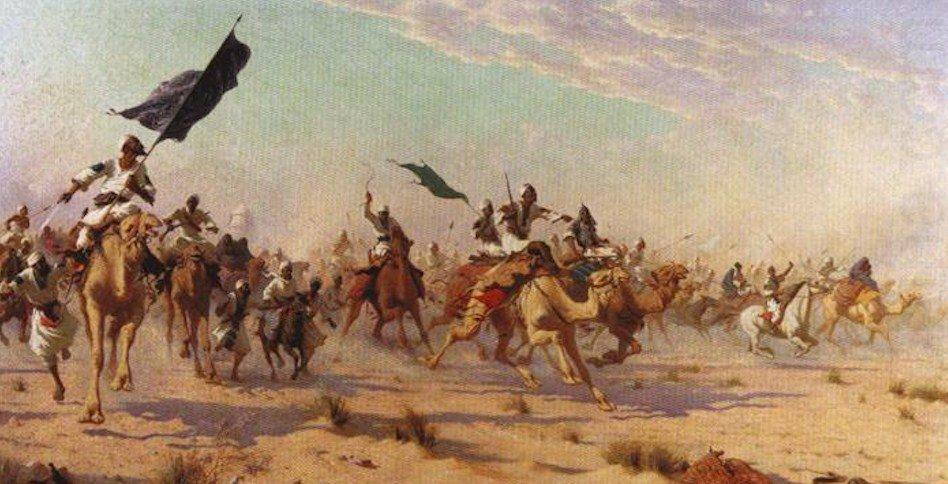ONE might wonder why our Creator would require us to fast for a month out of every year, given that He is all-powerful, self-sufficient and not in need of anything from His servants. Indeed, He does not gain any benefit from His servants’ worship, nor is He harmed by their refusal. So why do we fast?
The Qur’an tells us: “O you who have believed, fasting is decreed upon you as it was decreed upon those before you that you may become righteous.” (2:183)
We notice in this verse that the purpose of fasting is stated: “that you may become righteous.” So fasting is a means to refine the soul and attain taqwā, which means righteousness, piety and consciousness of our Creator. We don’t wait to become better people before we fast, because righteousness is the outcome and result of fasting. Yet, it is not the reason we fast.
The answer to this question can only be: We fast in obedience to our Lord. For He said: “The month of Ramadan is that in which the Qur’ān was [first] sent down, as a guidance for the people and clear proofs of guidance and criterion. So whoever witnesses the month, let him fast it…” (2:185) “And eat and drink until the white thread of dawn becomes distinct to you from the dark. Then complete the fast until the night.” (2:187)
In addition to the great rewards alluded to in prophetic narrations, there are a number of secondary benefits obtained in this world for those who fast. But while physical and moral benefits are definitely among the positive results of fasting, they cannot be the cause of it or the incentive for it. For a believer, not one of them may be cited as the reason for fasting.
The Muslim’s primary objective must be to fulfill his obligation to his Lord, to show servitude to Him, and to obey His command. If done for any other reason, the fast will not be accepted. In a hadith qudsi, Allah said, “Fasting is for Me, and l [alone] reward it. (Al-Bukhāri)
The performance of righteous deeds is not an end in itself, but it reflects consciousness of Allah, who is aware of every action, word, thought and intention; and this motivates the believer toward honesty and precision in everything he does. Fasting reminds us of our subservience to Allah and demonstrates our submission to Him. Although one has the ability to indulge his physical desires, he refrains out of willing obedience. The Messenger of Allah ﷺ told us, “Whoever fasts Ramadan with faith and seeking its reward will have what preceded of his sin forgiven.” (Ahmad)
We are living in an age of immediate gratification, where human needs and desires expect fulfillment almost as soon as they surface. From a psychological perspective, the ability to detach themselves from physical desires gives fasting people the knowledge that they have a degree of control over their bodies. The ability to postpone gratification and practice patience is an important skill. It facilitates abstinence from sins and from many of the addictions that have become part of modern life.
But this is not why we fast.
Fasting has been shown medically to be beneficial to both bodily and mental health. It cleanses the body of accumulated toxins and wards off many diet-related illnesses. It improves health, sharpens the intellect and enhances powers of concentration. It trains the body to face conditions of scarcity and fight disease. [Also read: Remembering Death And Ramadan]
But this is not why we fast.
Fasting gives training in endurance and acceptance. It develops courage, strengthens resolve and conditions a person to cope with difficulties in all aspects of his life. And it helps develop the qualities that successful people possess: willpower, strength and capability. [Also read: Practical Steps To Become A Better Muslim]
But this is not why we fast.
Fasting gives lessons in punctuality as one has to adhere to a strict schedule of time in the observance of a fast. It provides a sense of mental, physical and spiritual discipline.
But this is not why we fast.
Fasting teaches us patience, self-control and appreciation of the provisions and pleasures we often take for granted. Being hungry helps us to adjust our perspective about food. It should make us more appreciative and less wasteful.
But this is not why we fast.
Fasting develops moral character and cultivates in us a sense of humbleness. It helps us control evil thoughts and trains us to overcome stinginess and greed. The effort required to endure hunger and thirst is extended to conquer anger and resentment. It teaches us to become more tolerant through our own discomfort. [Also read: The Amazing Way Fasting Reduces Evil In Us]
But this is not why we fast.
Fasting helps believers detach themselves from physical desires and reduces their intensity. It enables them to develop an attitude of insignificance toward the present world and a preference for the Hereafter.
But this is not why we fast.
Fasting provides nourishment for the soul and has the effect of softening hearts. It produces compassion and generosity toward those less fortunate who cannot always relieve their pains of hunger at the end of the day and endure difficult conditions in their lives.
But this is not why we fast.
Fasting is about detoxification of the mind, body and soul. It creates the desire to become a better human being, and Ramadan is a great opportunity for believers each year to repent, amend themselves and thus change their destinies.
But this is not why we fast.
So why do we fast?
Only for our Creator… while awaiting our return to Him, hoping for His forgiveness and seeking His acceptance. For He has told us: “Allah intends for you ease and does not intend for you hardship, and for you to complete the [fasting] period and to glorify Allah for that to which He has guided you; and perhaps you will be grateful.” (2:185)
May Allah grant us the favor of fasting this month of Ramadan and accept it from us.
Limited free articles. Subscribe for full access.






 Dr. Bilal Philips
Dr. Bilal Philips